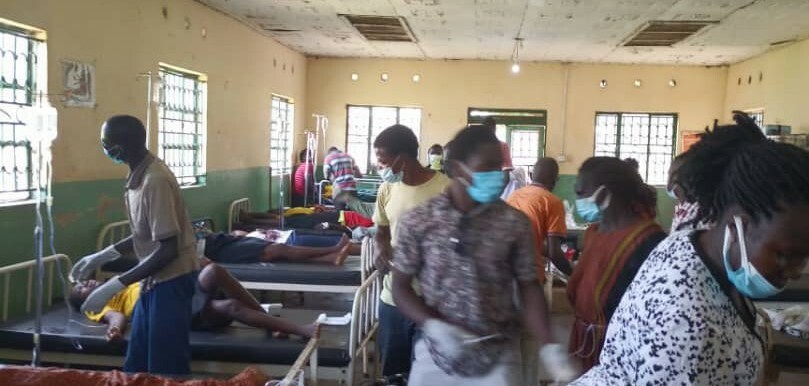South Sudan's Vice President for Service Cluster has instituted an investigation into the deworming campaign that led to the hospitalization of more than 100 students in Ibba County of Westen Equatoria State two weeks ago.
Most students who received the deworming pills called Praziquantel during a mass campaign organized by the national ministry of health and the World Health Organisation against bilharzia in the county developed severe side effects and were hospitalized at the Maridi Hospital.
Speaking in a public rally in Ibba County last Wednesday, Vice President Hussein Abdelbagi said they will get to the bottom of the incident.
"The drug which was brought here in Ibba, we will find out which factory brought the drug and we will take it for investigation in laboratories in Kenya, Uganda, and Sudan. Then we will wait for the report which will come out from those labs and if the report proved that the drug brought to Ibba had a problem then those who bought the drugs will have to answer," Abdelbagi said.
He also promised to support the victims and their families.
Meanwhile, Western Equatoria State health minister James Ado Vodokia told Radio Tamazuj on Friday that four children who were in critical condition after taking the tablets and were transferred to Juba Teaching Hospital for further treatment were recovering well.
“They were not able to eat but now they can eat, the hospital administration told us that maybe today or tomorrow, they will be finally discharged,” he said.
The minister said arrests had been made as investigations continue.
“There were some people who were detained plus the team leader who is from the national ministry of health, that is Wilson Sebit who was the head of the delegation was detained along with some county health department officials who were involved in the process of issuing the drugs. Up to now, I have not yet confirmed their status from the county commissioner,” he said.
According to Ado, about 700 children were affected by the pills and were treated at different hospitals in the region.




